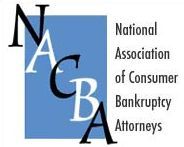Yes. Health care can be very costly. Hospital charges and doctor’s fees add up quickly, for procedures of all kinds, whether performed as outpatient services or more complicated procedures requiring a hospital stay. Debts from medical care are among the leading causes of personal bankruptcy filings. In bankruptcy, medical bills are treated the same way as credit cards and personal loans, and they are usually dischargeable. There are many people in this country who do not have health insurance, and it is easy to see how someone could get overwhelmed by medical bills from an unanticipated health issue.
Do I have to be in default on my loans before I can file for bankruptcy?
No. It is common for individuals to be behind on their bill payments when they file for bankruptcy, but eligibility for filing for bankruptcy is not based on default on payments. Most people who file for bankruptcy have tried their best to make all of their required payments, often by cutting back on necessities, like food, and depriving themselves and their families of simple niceties, like an occasional meal out or toys for their kids. Bankruptcy relief enables those people to redirect their income to provide for their necessities and living a normal life.
Depending on individual circumstances, some people choose to use a Chapter 13 payment plan to pay back as much of their debts as they are able. Persons whose income is not sufficient to afford such a payment plan seek to eliminate the debts without payments through a Chapter 7 bankruptcy. If you have been paying back loans from friends or family, tell your attorney about those loans before you file for bankruptcy, because they must be treated just like all of your other creditors, with some special rules regarding recent payments made on those loans (they may be treated as “preferences,” which the bankruptcy trustee will closely examine).
Must I have a certain amount of debt before I file for bankruptcy?
No. There is no minimum amount of debt that you have to owe before you can file for bankruptcy. Each individual’s circumstances are unique. What may seem like a small amount of debt to someone with steady income can be very burdensome debt to unemployed or low-income persons. A $5,000 debt owed by persons living on Social Security, in single income households or unemployed, is a significant drain on their pocketbooks and quality of life. If the creditor has filed suit and obtained a judgment, the result may be a levy by the Sheriff against needed assets, such as a car or furniture.
Even if you have a steady income coming in, understand that with the compounding interest, that same $5,000 will look more like $15,000 in just a matter of years. It would make more sense to use that same money that you are paying on your unsecured debt to put away toward retirement or improving your quality of life for you and your family.

